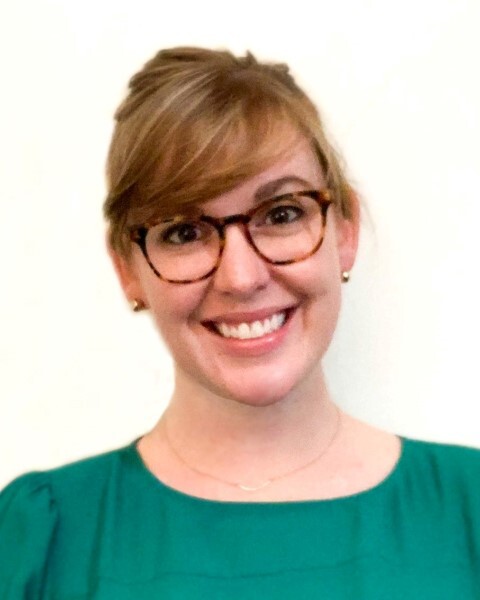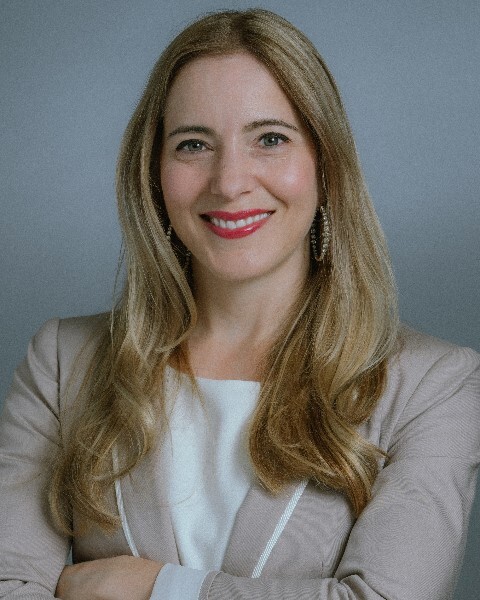
Recorded Mini Workshop #21- Caregiver Accommodation in Pediatric OCD: Why It Happens and How to Intervene When It Does (2023 CONVENTION RECORDING)
-
Register
- Non-member - $35
- Member - $25
- Student - $15

Katherine Durham, Ph.D.
Director of Clinical Assessment
Columbia University/New York State Psychiatric Institute
Montvale, New Jersey

Paula K. Yanes-Lukin, Ph.D.
Assistant Professor
Columbia University/New York State Psychiatric Institute
River Vale, New Jersey
Recorded on Sunday, November 19, 2023 at the 57th Annual ABCT Convention in Seattle, WA
1.5 CE Credits Awarded
$15 Student ABCT Members / $25 ABCT Members / $35 Non-Members
All prices listed in US currency
Abstract:
Parental and caretaker accommodation in pediatric Obsessive Compulsive Disorder (OCD) is common. It is also known to contribute to greater symptomatology and complicate treatment. While interventions such as SPACE and exposure and response prevention (ERP) focus on specific techniques to target parental and caretaker accommodations, there is less available explicit guidance on its specific functions, causes, and maintaining factors. While arguably not directly necessary for treatment, a deeper understanding of the various functions and processes involved in this type of accommodation may afford greater clinical improvement. Through direct validation of caregivers and targeting of the drives for parental action tendencies, clinicians may be better equipped to facilitate reductions in accommodation behaviors and/or the generation of more effective response substitutions.
Outline:
- Define accommodation
- Discuss family and caregiver accommodation
- Discuss relationship of accommodation to OCD severity and child functioning
- Discuss reasons for accommodation
- Initial causes
- Lack of awareness
- “Normal” responses to child’s anxiety
- Initial causes
- Desire to nurture and protect
- Difficult distinction between accommodation and meeting needs
- Modeled behavior from previous generations
- Maintaining factors
- Negative reinforcement
- Short term gain despite long-term consequences
- Maintaining factors
- Limited caregiver/child distress tolerance (DT)
- Limited caregiver/child emotion regulation (ER)
- Interactions between caregiver and child DT and ER
- Enmeshment
- Specific caregiver needs targeted by accommodation
- Caregiver’s need to fix or eliminate
- “Prevent” worsening/more severe symptoms (e.g., self-injury, suicidality)
- Relieve caregiver guilt
- Need to feel needed/useful
- Need to feel attached/connected to one another
- How to support caregivers decrease OCD accommodation:
- Validation
- Specifically, validate the function (to provide love in the best way they know how)
- Also, validate the emotions (difficult to see your child distressed or dysregulated)
- Build insight and provide psychoeducation
- Explaining how accommodation relates to OCD
- Exploring accommodation specific to family
- Address each need and offer alternatives
- Need to fix:
- Problem-solving creates feeling of control
- Prevent worsening/more severe symptoms:
- Psychoeducation on these thoughts and behaviors as attempt to (poorly) problem solve
- Discuss importance of experiencing distress and joining with the child instead of eliminating it immediately
- Relieve guilt:
- Describe acting from love vs. guilt/fear
- Need to feel useful:
- Find other helpful ways to alleviate child’s needs
- Need to feel attached/connected:
- Look for other ways to connect and express love/affection appropriately
- Validation
Learning Objectives:
At the end of this workshop, the learner will be able to:
1. Identify various factors contributing to the development of parental and caregiver accommodation among families receiving treatment for pediatric OCD.
2. Using techniques such as validation, values work, and affect attunement, participants will learn to work with parents and caretakers to increase insight and cultivate ability to engage in mindful caretaking.
3. To increase relevance and deepen understanding of concepts, participants will provide examples of the functions contributing to and maintaining patterns of parental/caregiver accommodation in the families with whom they work.
4. Long-term goals: Clinicians will be able to empathize with caregivers’ need to provide accommodation and understand its various functions.
5. Long-term goals: Clinicians will learn to validate caregivers and target accommodations directly to provide practical and effective solutions.
Recommended Readings:
1. Wu, M.S., McGuire, J.F., Martino, C., Phares, V., Selles, R.R., & Storch, E.A. (2016). A meta-analysis of family accommodation and OCD symptom severity. Clinical Psychology Review, 45, 34-44. https://doi.org/10.1016/j.cpr.2016.03.003
2. Murphy, Y.E. & Flessner, C.A. (2015). Family functioning in paediatric obsessive compulsive and related disorders. British Journal Clinical Psychology, 54, 414-434. https://doi.org/10.1111/bjc.12088
3. Kagan, E. R., Frank, H. E., & Kendall, P. C. (2017). Accommodation in youth with OCD and anxiety. Clinical Psychology: Science and Practice, 24(1), 78–98. https://doi.org/10.1111/cpsp.12186
****************************************
All attendees will receive a certificate of completion when the course requirements are satisfied. Certificate of completion is included in the cost of the webinar
The Association for Behavioral and Cognitive Therapies incurs significant administrative cost related to your registration before a webinar. Therefore, there are no refunds for live webinars. If you unable to attend a webinar, we will provide you with the recorded version after the live presentation (which is still eligible for CE credit). If you wish to cancel or request to transfer your webinar registration to another webinar please email your request to membership@abct.org.
ABCT is approved by the American Psychological Association to sponsor continuing education for psychologists. ABCT maintains responsibility for this program and its content
The Association for Behavioral and Cognitive Therapies has been approved by NBCC as an Approved Continuing Education Provider, ACEP No. 5797. Programs that do not qualify for NBCC credit are clearly identified. The Association for Behavioral and Cognitive Therapies is solely responsible for all aspects of the programs
The Association for Behavioral and Cognitive Therapies is recognized by the California Board of Behavioral Sciences for Marriage and Family Therapist (MFT) to offer continuing education as Provider #4600
Association for Behavioral and Cognitive Therapies (ABCT), is recognized by the New York State Education Department’s State Board for Psychology as an approved provider of continuing education for licensed psychologists #PSY-0124

